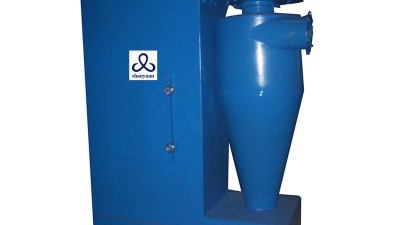Essential Checklist for Choosing the Right Cyclone Dust Collector Supplier
Table of Contents
- Key Factors to Consider When Selecting a Cyclone Dust Collector Supplier
- Understanding Different Types of Cyclone Dust Collectors Available in the Market
- Evaluating Supplier Experience and Industry Reputation
- Importance of Customization in Cyclone Dust Collector Solutions
- Comparing Warranty and Support Services Offered by Suppliers
- Analyzing Cost vs. Value: Making an Informed Decision
- Maximize Your Workshop Efficiency: The Ultimate Guide to Choosing a Cyclone Dust Collector
- FAQS
- Conclusion
- Related Posts
When you're looking into picking a cyclone dust collector supplier, it’s pretty important to understand just how crucial dust collection really is for keeping industrial environments clean and running smoothly. I came across a market report from 2022—it said that by 2026, the global dust collector market might hit around $13.7 billion. That's mainly because of stricter environmental rules and the growing need to improve air quality in factories and plants. Now, even companies like Shanghai Jiongcheng Industrial Co., Ltd.—who focus on things like lubrication solutions and high-temp chain lubricants—know that managing dust effectively is a big deal. It affects how well machinery works and how long it lasts. So, picking the right supplier isn’t just about getting some equipment—it’s about making sure those dust collectors are working well, helping your business stay efficient, compliant, and safe overall.
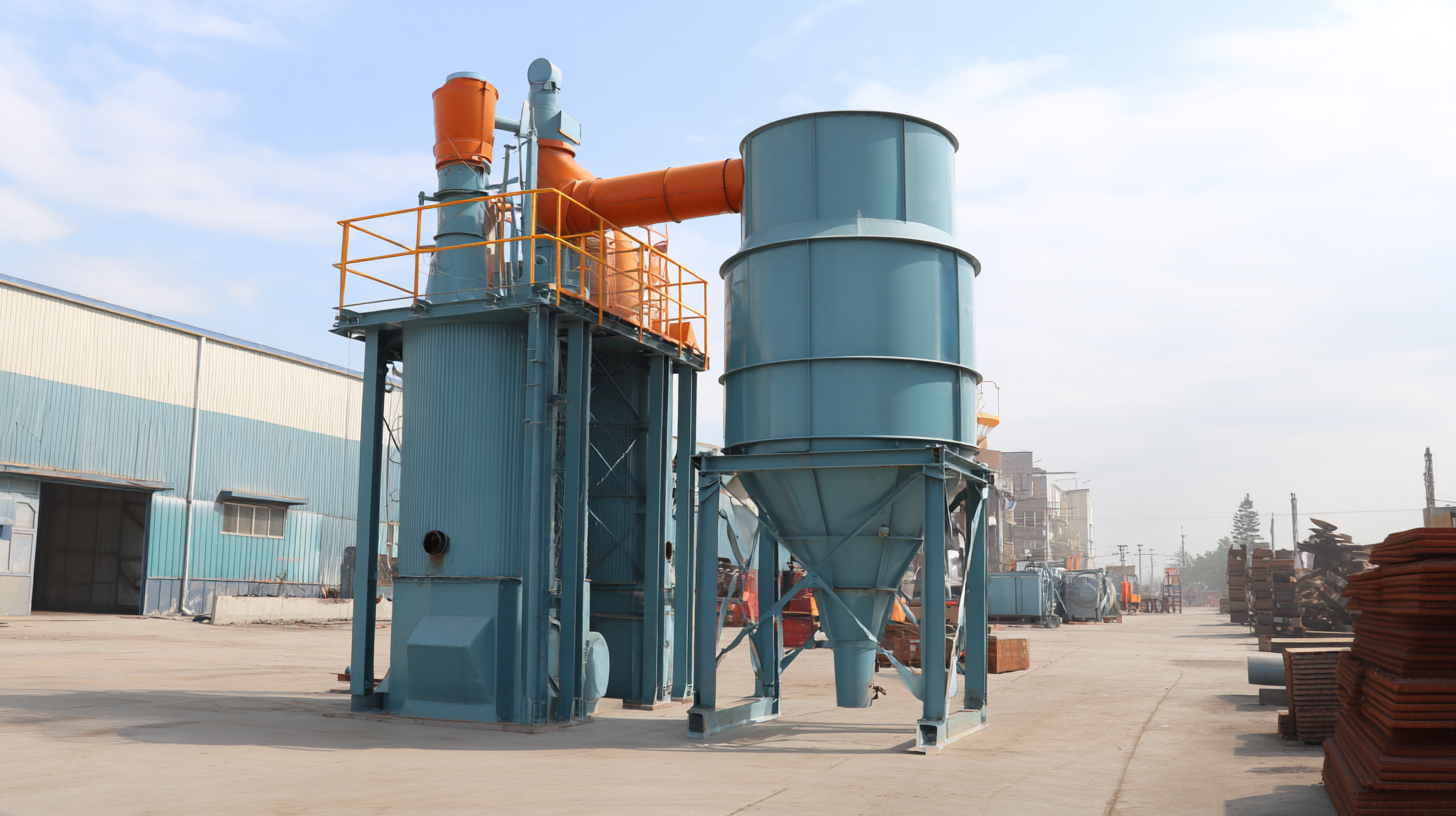
Key Factors to Consider When Selecting a Cyclone Dust Collector Supplier
When you're on the lookout for a cyclone dust collector supplier, it’s pretty important to keep a few key things in mind so you end up with the right fit for your industrial setup. First off, take a close look at how much experience they’ve got and how knowledgeable they are in this area. If a supplier has a solid track record—like years of manufacturing and installing cyclone dust collectors—you can pretty much bet they know their stuff, and they’ll probably give you better advice on what’s best for your needs. It’s a good idea to peek at reviews or case studies that showcase their successful projects; it really tells you a lot about their reliability and quality, in my opinion.
Also, don’t forget to check out what kinds of products they offer. A supplier with a wide range of models and options is usually a good sign—they can often provide custom solutions that fit your specific requirements better. Plus, see if they offer support services like installation, maintenance, or troubleshooting, because those things can make a huge difference in how well your cyclone dust collector performs over time.
And last but not least, pay attention to their customer service. Having open lines of communication and getting quick responses can make the whole process way smoother. It just helps ensure your needs are heard and looked after, not just during the sale but afterwards too. All in all, taking these things into account can really save you some headaches down the line.
Understanding Different Types of Cyclone Dust Collectors Available in the Market
When you're looking into cyclone dust collectors, it's pretty important to get a handle on the different types out there. Basically, these systems fall into two main categories: single-stage and multi-stage. If you’re running a smaller operation, chances are you’ll lean towards a single-stage model because it’s simpler and more budget-friendly. They work by using centrifugal force to kick out dust and debris from the air—perfect for light-duty jobs. In fact, a 2022 industry report mentioned that about 60% of small to mid-sized manufacturing spots go for these single-stage setups.
On the flip side, multi-stage cyclone dust collectors are built for the heavier, more demanding tasks—think woodworking or metalworking workshops. They’re way better at catching those tiny, fine particles, which helps cut down emissions and keeps the air way cleaner. According to the same report, these multi-stage systems hold around 30% of the market share, which is probably because of stricter environmental rules and industry folks wanting to keep their air quality in check. Getting a good grasp of these differences can really help businesses pick the right system for what they do, while also staying in line with industry standards that keep evolving all the time.
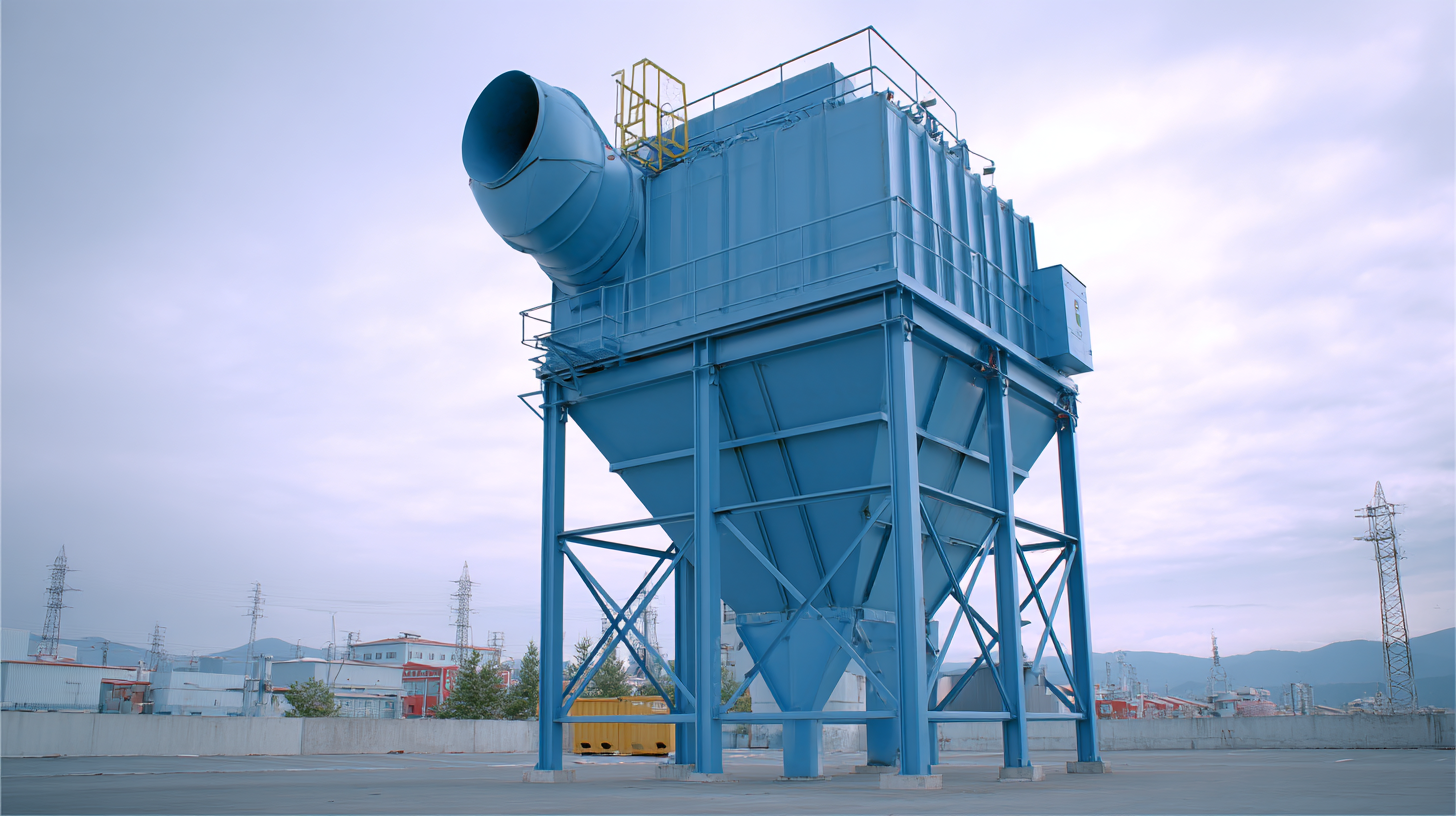
Evaluating Supplier Experience and Industry Reputation
When you're trying to pick a cyclone dust collector supplier, it's super important to look into their experience and how well they're regarded in the industry. I read somewhere (thanks to the Industrial Dust Control Association) that more than 60% of manufacturing plants that have used cyclone dust collectors ended up with better air quality and safer working conditions. That really drives home how key it is to partner up with a supplier who’s got a solid track record of delivering top-notch, effective dust collection solutions. An experienced supplier isn’t just about technical know-how—they can also share useful tips and best practices to help your system perform at its best.
And don’t forget, what others say about a supplier really matters. If they’ve got a good reputation, it’s usually a good sign they’re reliable and that customers are happy with their work. In fact, a survey from the EPA found that folks who went with suppliers backed by industry endorsements were about 25% more satisfied. So, it’s worth doing some homework—check out their certifications, look for customer reviews, and see some case studies of what they’ve accomplished before. A reputable supplier should be willing to give references and show they meet the necessary regulatory standards—that’s essential to stay compliant no matter what kind of industrial setting you’re in.
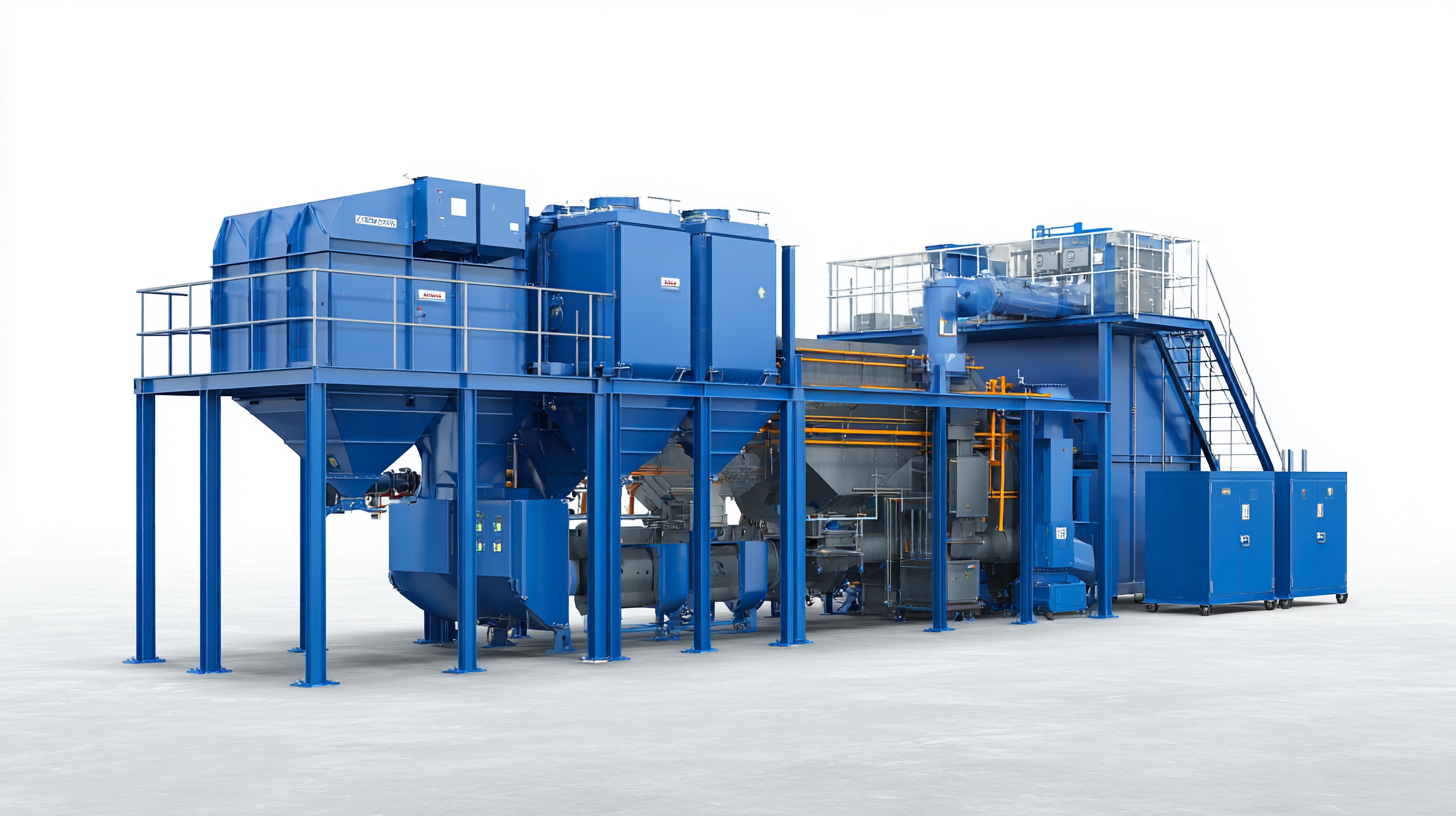
Importance of Customization in Cyclone Dust Collector Solutions
When you're on the hunt for a cyclone dust collector supplier, don’t underestimate the power of customization. Every industrial setup is kinda unique—materials used, airflow needs, dust types—they all vary a lot. So, trying to fit your needs with a cookie-cutter solution can actually backfire, leading to inefficiencies and costing you more in the long run. Going for a tailored setup, on the other hand, doesn’t just boost performance; it also helps the equipment last longer and stay reliable, no matter what kind of environment you’re tackling.
Pro tip: When chatting with potential suppliers, ask them how flexible they are with customizing their systems. Don’t hesitate to dig into their past projects—see if they’ve got some case studies showing how they’ve adapted solutions for clients with similar needs.
And here’s another thing—top-notch suppliers that offer custom solutions usually go a step further, providing extra services like system integration and ongoing support. This way, you can rest assured your cyclone dust collector will mesh well with your existing gear, and any tweaks down the line will be a breeze. Knowing how a supplier handles these kinds of things can really make or break your satisfaction in the long run.
Another tip: Try to go with suppliers who do a proper assessment of your site before making recommendations. The ones willing to spend the time analyzing your specific situation are more likely to deliver a solution that actually tackles your dust collection challenges right from the start.
Comparing Warranty and Support Services Offered by Suppliers
When you're choosing a cyclone dust collector supplier, it’s really important to pay attention to the warranty and support services they offer. A good warranty can actually save you a lot of headaches down the line, making sure you're covered if anything goes wrong with your equipment. It’s worth taking the time to read the fine print—know exactly how long the warranty lasts and what’s included. Honestly, I’d suggest focusing on suppliers who offer extended warranties with clear, straightforward support details—that’s often a sign they stand behind their products.
Support services matter just as much. Having a supplier that’s there to help whenever you need it can make all the difference—whether it’s tips on maintenance, troubleshooting, or just quick responses to your questions. Here at Shanghai Jiongcheng Industrial Co., Ltd., we totally get how crucial reliable support is. Just like we put high standards into our lubrication solutions for compressors and vacuum pumps, we believe your dust collector supplier should stay engaged and responsive—especially if you’re running demanding operations. It’s all about peace of mind, really.
Analyzing Cost vs. Value: Making an Informed Decision
When you're choosing a cyclone dust collector supplier, it’s really important to find that sweet spot between cost and value. You know, using tools like Cost-Volume-Profit (CVP) analysis can be a game-changer, especially for small businesses trying to make smarter decisions. It helps you get a clear picture of how costs, sales volume, and profits all connect, so you can really see what kind of value you’re getting from different suppliers. This way, you can figure out not just which option fits your budget, but also which one will actually make your operations smoother, safer, and more efficient.
And let’s not forget about taking a long-term view. Doing a solid cost-benefit analysis can reveal some pretty compelling economic benefits of investing in a good quality cyclone dust collector. It’s not just about the sticker price upfront; it’s about the bigger picture—like better air quality, meeting safety standards, and boosting productivity. When businesses weigh their options using these financial tools, they’re much more likely to pick solutions that align with their goals and help them grow sustainably. Honestly, every investment in a dust collector should be looked at with a future mindset—because the right supplier won’t just be affordable, they’ll deliver real overall value that lasts.
Essential Checklist for Choosing the Right Cyclone Dust Collector Supplier - Analyzing Cost vs. Value: Making an Informed Decision
| Criteria | Description | Cost Consideration | Value Consideration |
|---|---|---|---|
| Supplier Experience | Years in business and specialization in cyclone dust collectors. | Higher costs may correlate with greater experience and expertise. | Experienced suppliers often offer better reliability and support. |
| Product Quality | Materials used, construction quality, and performance metrics. | Initial investment may be higher for premium quality products. | Longer lifespan and lower maintenance costs add value over time. |
| Customization Options | Ability to tailor products to specific needs of the business. | Custom solutions can increase upfront costs. | A better fit for operations can enhance efficiency and effectiveness. |
| Customer Support | Availability of technical support and post-purchase service. | Superior support may come with a premium price tag. | Strong support can minimize downtime and operational disruptions. |
| Reviews and Reputation | Feedback from previous customers and industry reputation. | Negative reviews may indicate potential risks, possibly impacting price considerations. | Positive reviews can validate value and inform purchasing decisions. |
Maximize Your Workshop Efficiency: The Ultimate Guide to Choosing a Cyclone Dust Collector
Maximizing workshop efficiency requires careful selection of the right tools, and one of the most crucial investments you can make is in a cyclone dust collector. This specialized device utilizes the power of centrifugal force generated by the swirling motion of dust-laden air to effectively separate and trap dust particles from the air. By removing airborne particles, a cyclone dust collector not only maintains a cleaner work environment but also prolongs the lifespan of your equipment and enhances overall productivity.
In addition to improving air quality, a cyclone dust collector is designed for efficiency and effectiveness in high-volume dust collection environments. Its robust construction ensures that it can handle heavy loads while minimizing maintenance needs. Selecting a cyclone dust collector with the right specifications tailored to your workshop's size and type of operations can dramatically reduce downtime caused by dust build-up. As dust is collected and contained, you ensure that your tools and working surfaces remain clean, allowing you to focus on what you do best—creating and building.
FAQS
: Evaluate the supplier's experience and expertise, the range of products offered, support services, and customer service to ensure a good fit for your industrial needs.
Cyclone dust collectors are primarily categorized into single-stage and multi-stage systems. Single-stage systems are simpler and cost-effective for smaller operations, while multi-stage systems are better suited for demanding applications.
Single-stage systems account for about 60% of the market for small to mid-sized manufacturing facilities due to their simplicity and effectiveness in light-duty applications.
Multi-stage collectors are engineered for higher efficiency in capturing fine particulates, significantly reducing emissions and improving air quality, making them ideal for industries with stringent environmental regulations.
A solid warranty protects your investment by covering defects and functionality over time. It's essential to understand the terms and duration to ensure you’re adequately protected.
Look for suppliers that provide robust technical support, maintenance guidance, troubleshooting assistance, and prompt responses to queries to ensure optimal use of the dust collector.
Good customer service enhances your purchasing experience by ensuring that your needs are met efficiently, which is crucial throughout the buying process and for ongoing support.
A supplier with a versatile range of models and options can provide customized solutions that meet your specific operational requirements more effectively.
Multi-stage systems account for around 30% of the market share, driven by stricter environmental regulations and the increasing demand for cleaner air in industrial settings.
Testimonials and case studies highlight a supplier's reliability and quality by showcasing their successful projects, which can help inform your decision.
Conclusion
When you're on the lookout for the right cyclone dust collector supplier, there are a few key things you really want to keep in mind. It’s super important to understand the different types of cyclone dust collectors out there because each one is suited for different kinds of industrial tasks. Checking out a supplier’s experience and reputation can tell you a lot about how reliable they are and the quality of what they offer. Plus, don’t forget about customization—having a supplier that can tweak solutions to fit your exact needs is a big plus. You should also peek at their warranty and support services, since good after-sales support can make a world of difference in the long run. And of course, weighing the cost against the value you’ll get helps you make smarter choices—stuff that fits your budget but also meets your operational needs. All in all, taking these points into account will help you pick the best partner for your dust collection setup.
Related Posts
-
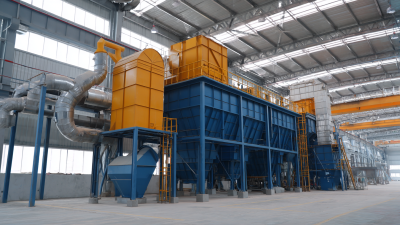
Future Trends in Cyclone Dust Collector Manufacturing Industry for 2025 Insights and Predictions
-
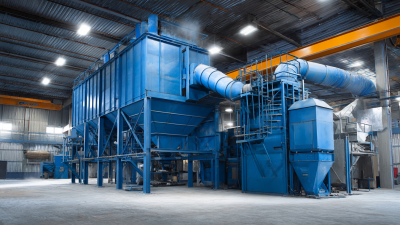
7 Compelling Reasons to Choose the Right Cyclone Dust Collector for Your Business
-
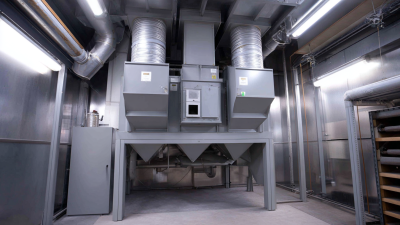
The Ultimate Guide to Craftex Dust Collector: Insights, Reviews, and Buying Tips
-
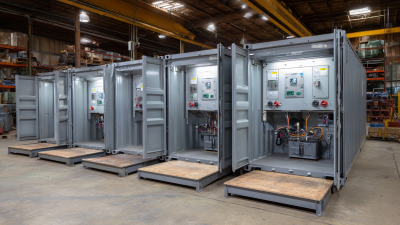
Choosing the Right Manufacturer for Best Micro Air Dust Collectors and Key Features to Compare
-

Top Strategies for Selecting the Best Reliant Dust Collector A Guide for Global Buyers
-
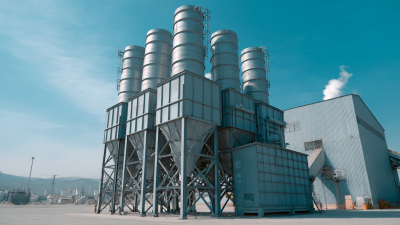
7 Innovative Tips for Understanding the Multi Cyclone Dust Collector Working Principle
Blog Tags:

